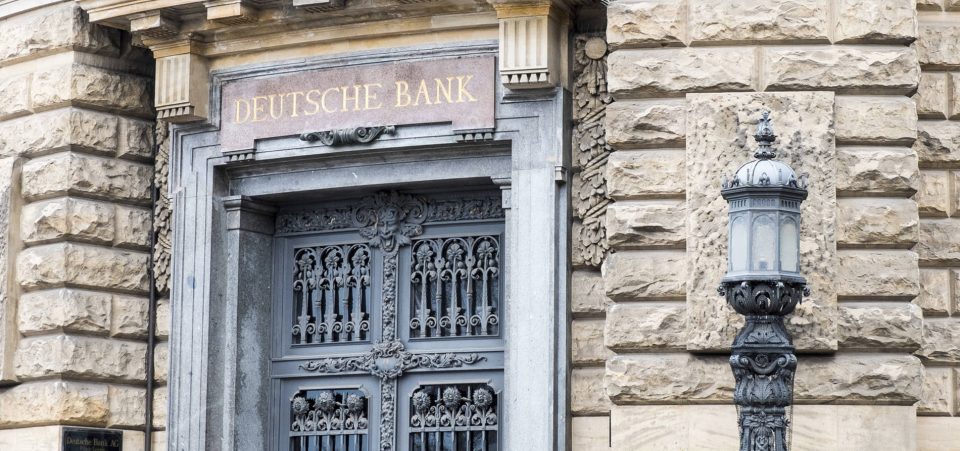On the Brink of Collapse, Deutsche Bank Faces More Fines
Deutsche Bank AG (USA) (NYSE:DB), Germany’s largest bank, has started to pay for its decade of strategic mistakes. The past has caught up and Deutsche Bank now faces the specter of bankruptcy. The global markets in general would suffer, as the shock of DB stock’s collapse could parallel the Lehman Brothers crash in 2008. After the big drop in early October, it seemed that Deutsche Bank managed to address some problems. However, it’s a far way off from being in the clear.
Now, Deutsche Bank ranks among the 10 largest European banks that may have to strengthen their capital to comply with new solvency rules. The EU will enforce these rules in the next few years. (Source: “Deutsche Bank set to be among hardest hit by new capital rules,” CNBC, November 2, 2016.) The Basel Committee, which coordinates the oversight of banks internationally, will review the current rules. The results of this review will lead to new rules that will come into force in 2019.
The new rules will make it harder for large banks to take risks. This will apply especially to real estate loans. Deutsche Bank and other institutions with complex balance sheets will be particularly tested by the new regulations. (Source: Ibid.) Meanwhile, Deutsche Bank still faces a potential fine, to be delivered to a U.S. Court, of up to $14.0 billion for an old dispute involving securitized home loans—the subprime scandal.
Deutsche Bank’s future remains on the brink. The big question in global banking circles is just what the chances are of Deutsche Bank needing a financial rescue. (Source: “Will Germany flout Europe’s bail-in rules if Deutsche Bank needs rescuing?,” The Conversation, October 25, 2016.) The question is worth asking, because a little over a month ago, German Chancellor Angela Merkel said the German government would not come to Deutsche Bank’s aid.
That threat sent DB stock’s price collapsing seven percent to its lowest level in history. DB’s latest quarterly results show a 98% plunge in profits. The IMF said that DB represents the biggest net contributor to systemic risks in the international banking sector. For decades, Deutsche Bank observed the German conservative tradition of ‘bank-industry’, acting mainly as a lender to established companies. In the late ’90s, it changed models and switched to higher risk speculative activities, brokerage, and complex financial arrangements.
Berlin, technically, could come to DB’s aid. In 2008, Germany established the ‘SoFFin’ (Sonderfonds Finanzmarktstabilisierung—Special Financial Market Stabilization Funds), a fund to bail out its troubled banks. The SoFFin remains operational and could intervene to the tune of almost €480.0 billion.






